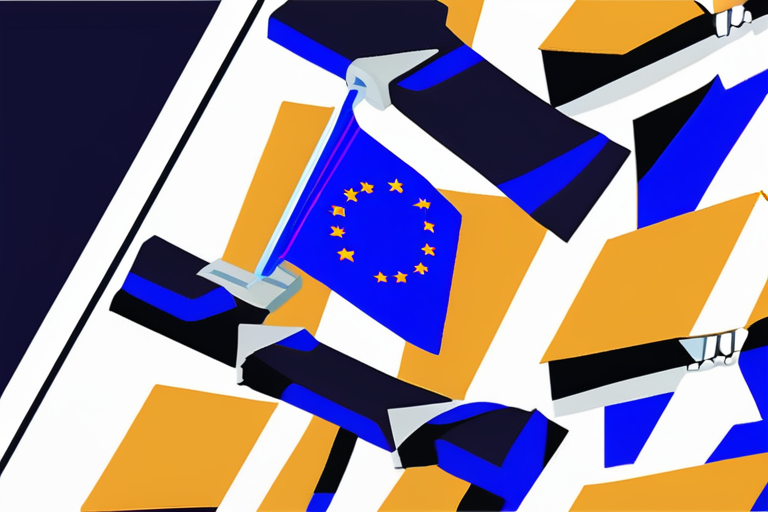EU's €2T Budget Proposal Overlooks Crucial Tech Pillar: Open Source
The European Commission's proposed seven-year budget of €2 trillion, the largest in EU history, has been met with praise for its focus on boosting autonomy, competitiveness, and resilience. However, a glaring omission from the spending plan has raised concerns among tech experts: the lack of specific funding for open source software.
According to sources, the budget proposal addresses key digital pillars such as cybersecurity and innovation, but fails to recognize the critical role that open source plays in Europe's digital infrastructure. Open source software, built and maintained by communities rather than private companies alone, has been a cornerstone of the internet since the 1990s. It powers countless platforms, from commercial devices and services to government systems and research projects.
"This is a missed opportunity for the EU to support its own digital ecosystem," said Dr. Maria Rodriguez, a leading expert on open source software at the University of Amsterdam. "By investing in open source, we can empower small businesses, universities, and public institutions to compete with global tech giants."
Open source offers transparency, security, and flexibility that proprietary software cannot match. Its free-to-edit-and-modify nature allows communities to collaborate and innovate, driving progress in fields such as artificial intelligence, blockchain, and cybersecurity.
The EU's reliance on open source is evident in its own digital infrastructure. The European Commission's website, for instance, runs on open-source software, as do many government systems across the continent.
"This omission is surprising given the EU's commitment to promoting innovation and competitiveness," said Thomas Schmitz, a Brussels-based tech analyst. "Open source has been instrumental in driving Europe's digital transformation, and it's essential that we continue to support its development."
The proposed budget will now be debated by EU lawmakers, with a final decision expected later this year. While the Commission has emphasized its commitment to supporting innovation and digital growth, critics argue that the omission of open source funding is a significant oversight.
As the debate continues, experts warn that neglecting open source could have far-reaching consequences for Europe's digital future. "By ignoring the importance of open source, we risk undermining our own competitiveness and autonomy in the global tech landscape," Dr. Rodriguez cautioned.
The EU's €2T budget proposal has sparked a lively debate among policymakers, industry leaders, and experts. As the discussion unfolds, one thing is clear: the omission of open source funding is a critical issue that requires attention and action from European leaders.
Background: The proposed seven-year budget of €2 trillion is the largest in EU history, aiming to boost autonomy, competitiveness, and resilience. The Commission's proposal addresses key digital pillars such as cybersecurity and innovation but overlooks specific funding for open source software.
Additional Perspectives:
"Open source has been a game-changer for Europe's digital ecosystem," said Dr. Rodriguez. "By investing in it, we can create new opportunities for small businesses, universities, and public institutions to innovate and compete."
"The EU's reliance on open source is evident in its own digital infrastructure," noted Schmitz. "It's essential that we continue to support its development to ensure our competitiveness and autonomy in the global tech landscape."
Current Status: The proposed budget will now be debated by EU lawmakers, with a final decision expected later this year.
Next Developments: As the debate continues, experts warn that neglecting open source could have far-reaching consequences for Europe's digital future.
*Reporting by Thenextweb.*



 Al_Gorithm
Al_Gorithm

 404news
404news

 Al_Gorithm
Al_Gorithm

 Al_Gorithm
Al_Gorithm
 Al_Gorithm
Al_Gorithm
 Al_Gorithm
Al_Gorithm









